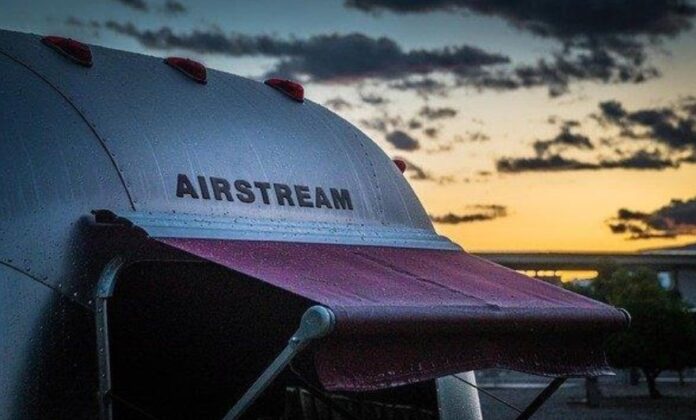RVs are a lifestyle. With all available means of travelling and accommodation all around the US, the people who chose to travel/live full time in an RV do so out of all positive emotions that come with it: an unprecedented level on-the-move comfort of living (save perhaps for living on a yacht).
According to the recent surveys there are now more 25-35 y.o. Americans who switched to RVing than there are the once-dominant 60+ y.o. motorhome owners. And of course very few of them can boast any previous experience of travelling in a mobile home, yet along living in one.
And that is not a problem! Just check here on how to choose a good RV battery. Why the battery? Well, it’s simple! If you would happen to suddenly lose your motorhome grid power cause of an old or frost-bitten battery, you wouldn’t be able to reach out to the Internet and google on how to solve any other problems any issues you may encounter on the Journey (from replacing a wheel to a leaking propane regulator to treating your dog after he has committed an act of bravery of sorts). Not just the battery, everything in your new home needs to be thought out and planned. Everything from a cooler, stove, hammock, toilet solution…all! Feel free to check out easytripguides.com for more on items like these and for some solutions.
However with that being said…
In this article we wanted to address the more fundamental issues that people face when making a decision to switch to the full time motorhome life:
- How’s this gonna be?
- How will my significant other feel about this change?
- Will our kids grow up ok if we go full-time RV living?
- How will I keep earning money to keep my new home rolling?
Let us dive a bit into these and tell you how living in an RV is different from holiday travelling in one, or living in an apartment or sticks-and-bricks home.
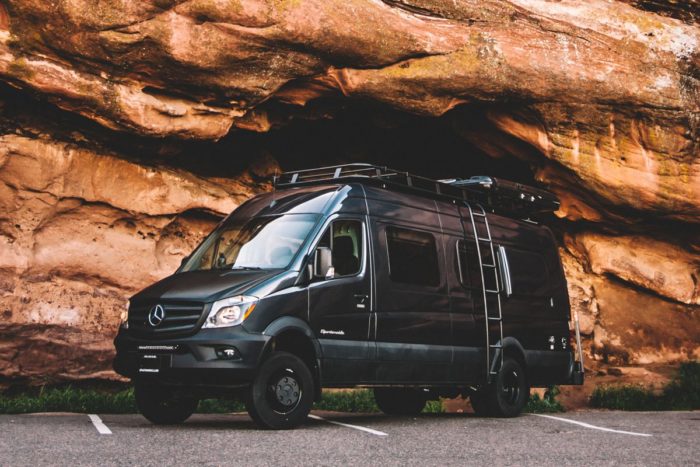
1. New or used? (if you do not possess one yet)
Yes, naturally you can go for a loan to purchase a brand new C-class motorhome.
But talk to 10 RVers and 9 will tell you that’s not a decision you’ll thank yourself for in 1 years’s time. Especially if this is your first motorhome. And the is not the main consideration here.
No amount of reading/ watching vlogs of other people’s life or even 2-3 week RV vacation can prepare you for a year-long RV life.
Your unique adventures, experiences and difficulties encountered (and those of your significant other if you travel together) will shape your idea of what’s important and what’s not in YOUR mobile home. Then and only then can you make an educated decision when picking a perfect rig for you (be it new or another used one).
And then there is the actual costs. Compare a 5 y.o. used and pristine condition RV with a 5 y.o. house and you will find that the price of former depreciated significantly, while the stick-and-bricks home remains rough the same bucks. A rig is a mobile asset and it depreciates quite fast (oftentimes in price than actual comfort though).
But even then – a professional refurbishment, changing weak points like grass or gasket and general revamping of a used motorhome will likely cost you only a few thousand USD. And serve you well the next 5-7 years after. So buy one, have it ready to go and if you can afford to put aside $30-40k… you may end up with owning a great rig and NO BANK payments whatsoever! Talking about freedom!
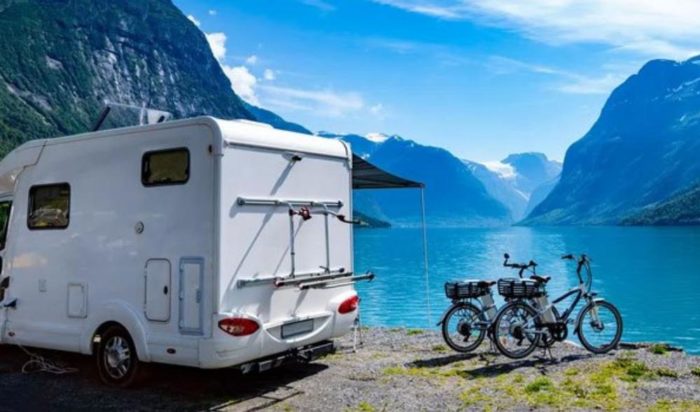
2. Budgeting the daily RV life
Now, let’s look into the current expenses of living on an RV.
You primary money drainers are:
- water and sewage
- power
- heating (propane),
- wireless Internet
- camping fees
- insurance
- gas
- maintenance
(we deliberately EXCLUDE the cuisine and entertainment, as these expenses may vary 5-fold depending on one’s personal preferences)
Take gas for example. Spending on gas for a typical rig will be on the lines of 10 miles/ 1 gallon. Compare travelling 15 000 mi a year (picking best places and neighbors) with living in a sticks and bricks house and driving 2 cars to and from the city nearly every day… and that doesn’t sound like too much.
Or take camping costs. A seasoned caravanner can spend anything between 0 and 50 usd per day on camping, but an average $500/ month isn’t that much of a burden, when compared to, say, renting the said apartment.
As a rule of thumb there is far less lighting, water, maintenance and propane needed to live comfortably in an RV. Generalizing, the costs of all the above-listed commodities can be about 1/3 of a typical bill for the same number of people living in as opposed to an apartment or stick-and-brick house.
3. Making more sense out of space and stuff
Now no matter how large your rig is – it’ll never have same spacious wardrobes, kitchen cabinets or bathroom shelves as an apartment will. This means that only your best and most suitable clothing, shoes, cosmetics, home appliances and even your dog’s toys are coming with you.
Many people find it surprisingly easy to get used to this change still. Switching off from a stationary life in a large city’s community automatically relieves you from having to dress up in a different manner for work, family walks, bar crawls, shopping with friends and evening coming outs with a significant other. This sole step away from what many of us believe to be the norm empowers many RVers to stick to this new light lifestyle that feel so much closer to true freedom.
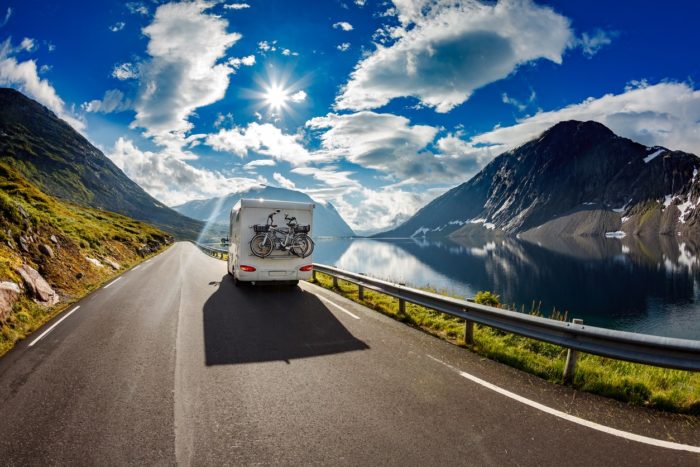
4. Earning money to keep rolling
Now, let’s face it: you probably can take care of yourself by the time you feel like changing your lifestyle to RV life.
But will your skills and competencies gained so far keep you cash flow positive when you hit the road?
Make an acid test of your skills. See how transferable they are right now! If you are coming, say, from the corporate, financial or law sector – just imagine becoming 100% virtual for all your clients, partners and colleagues. Is there something you can still offer them that is worth paying you for? If there is (like coaching or outsourced work) – than congrats, there is this much you can do (or fall back to rather) to keep your rig rollin’!
Alas… Living in a motorhome is a lifestyle, remember? So you shouldn’t be too surprised if one day you find yourself wanting to begin a truly new life. To start making something totally new for living. And guess what? You CAN do that!
Perhaps one day you will start to remember some of their less obvious transferable skills, that you possess? And there are some odd jobs all in communities all around the US that were in demand 100 years ago (and probably will remain so for another 100 year or more)
These may sound like small right now, but remember how living a mobile life requires ⅓ of the money you needed before? Here is where this works FOR you again: you can make enough money to keep going from doing simple and yet useful things. How small? Think wedding photography. Or house plumbing. Or fixing local computer problems. Babysitting. Banner design. All you need to do is talk to some local folk about who needs what done. Or simply dive into the Craigslist – and go out there to meet new people and help them!
And of course there is the Internet. Many RVers make their living by making and/or owning online shops, selling and dropshipping, running online marketing for other people or writing articles and making other great content for blogs YouTube channels. A ton of opportunity for an endeavours millennial there!
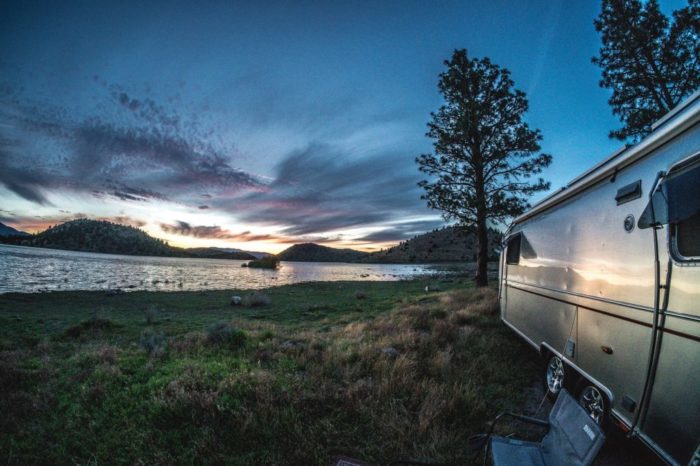
5. Prepare for a major relationship evolution!
As one popular RV blogger has put it: living in a rig makes people more open and honest to each other. There is no other way about it!. If it were the sticks-and-bricks house with many rooms and people working different jobs – probably they could just try and ignore a problem for some time for it to disappear. But your rig is like a pressure cooker – if you don’t set things strain between you, i’ll keep boiling and boiling!
So the couples who really enjoy themselves and have the courage to change their life to living together full time in a motorhome will probably experience the cleansing and purification of their relationship like no other. The road you accept together will change you both, and it will forge a new relationship, stronger and more open. So be ready for it!
We’ve tried to cover the most fundamental stuff about living full time in an RV: the spending, the earning, the spiritual. But perhaps there are other important things that a beginner RV dweller should know that I’ve missed? Live you comments here and tell us what YOU think matters for all the young and old Americans there deciding if to hit the road in STYLE?

